by Rachel Pienta | Jun 12, 2023
Many 4-H clubs take a break during the summer months. Club leaders and youth may travel, have different summer schedules, or choose to participate in camps during the summer months. 4-H volunteers can help play a role in helping youth and families transition to summer activities. Furthermore, the transition from the club year to summer activities is an opportunity for volunteers to help lay a foundation for youth retention in the next 4-H year.
Research shows that summer activities can play an important role in youth development:
Out-of-school and summer programs can play a variety of important roles in supporting healthy development during childhood. First, out-of-school and summer programs provide a setting for children to experience supportive social relationships with both adults and peers, relationships that foster emotional, behavioral, and cognitive development. Second, such programs offer an opportunity for both structured and unstructured play, as well as a child’s choice in activities. This may be particularly important as schools increasingly focus on structured academic learning, even in the early grades (Bassok et al., 2016), and as other societal changes, such as increased parental employment and greater digital engagement decrease opportunities for unstructured play (Yogman et al., 2018).
(Hutton R. & Sepúlveda MJ, 2019)
Club Year Transitions
Club leaders may choose to close out the club year when the school year ends. This ending may involve a celebration, a recognition of achievement, or it may take the form of electronic communication with parents. It is important to close the club experience with an invitation for future 4-H engagement. This engagement may be day or residential camp, the next club year, a 4-H Open House event. Other club leaders may change the meeting schedule or offer different activities during the summer months. Youth may transition to an older age group with the new club year or may choose switch clubs as interests change. The summer months offer opportunities to help youth choose the next step in their 4-H experience. It is helpful to follow up with a club year recap email that includes summer resources and suggestions. Adding in the date of the fall 4-H Open House event and preview information about the next club year can help increase member retention from year to year.
Opportunities for Senior 4-H Youth

4-H youth receive awards recognizing achievements during 4-H University event.
If your county offers summer day camps, your 4-H agent may be able to engage high school age senior 4-H youth as volunteers. The summer volunteer camp counselor experience can play an important role for rising ninth through twelfth graders who are looking to develop valuable workforce skills and experience. An added plus for youth is that 4-H volunteer hours can count toward fulfilling the Bright Futures service hours requirement.
4-H Summer Camps
Your local Extension office likely offers a variety of themed 4-H day camps that focus on life skills. The state 4-H program also offers residential camps. Senior 4-H youth can also attend overnight events such as 4-H Legislature, 4-H University, and 4-H Grilling Camp. Intermediate youth have the option of participating in the iLead weekend. The county 4-H agent can help volunteers become well-versed in the many summer options offered by 4-H that are available for youth locally and around the state.
For more information, contact your local Extension office and bookmark the state 4-H page.
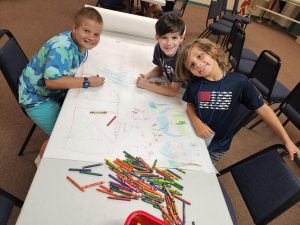
At 4-H summer day camp, youth learn about farms and design their own dream farm.
Resources for Additional Reading
Ellison, S., & Harder, A. (2018). Factors Contributing to the Retention of Senior 4-H Members: From the Youth Perspective. Journal of Human Sciences and Extension, 6(3), 10. DOI: https://doi.org/10.54718/LCJZ7328
Hutton R. & Sepúlveda, MJ, editors. (2019). Shaping Summertime Experiences: Opportunities to Promote Healthy Development and Well-Being for Children and Youth. Washington (DC): National Academies Press (US); 2019 Sep 26. 3, The Effects of Summertime Experiences on Children’s Development. National Academies of Sciences, Engineering, and Medicine; Division of Behavioral and Social Sciences and Education; Board on Children, Youth, and Families; Committee on Summertime Experiences and Child and Adolescent Education, Health, and Safety. Available from: https://www.ncbi.nlm.nih.gov/books/NBK552668/
Lewis, K. M., Hensley, S., Bird, M., Rea-Keywood, J., Miller, J., Kok, C., & Shelstad, N. (2022). Why Youth Leave 4-H After the First Year: A Multistate Study. Journal of Human Sciences and Extension, 10(3), 5. DOI: https://doi.org/10.55533/2325-5226.1429
Newby, L. & Sallee, J. (2016). 4-H Membership Recruitment/Retention Problems: A Meta-Analysis of Possible Causes and Solutions. Journal of Youth Development. 6. 37-46. 10.5195/JYD.2011.163.
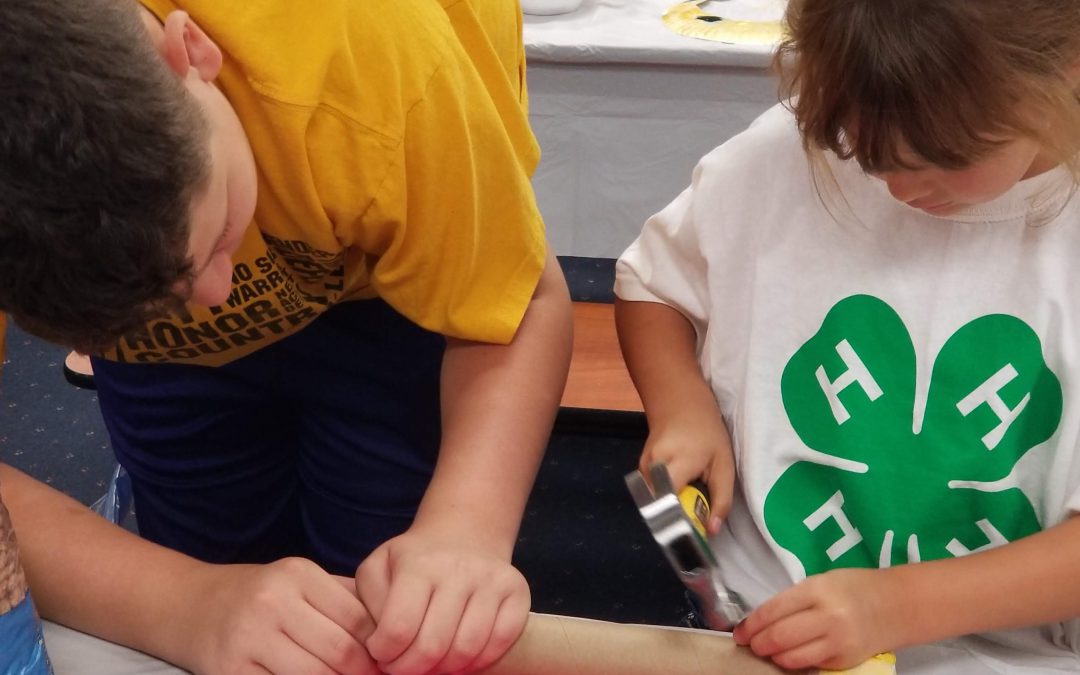
by Niki Crawson | May 19, 2023
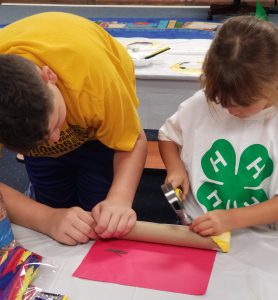
We know that younger youth look up to older youth and like to model their behaviors. We see it in siblings all the time, absorbing behaviors of their older brothers or sisters like sponges. Often times, younger youth find the attention and encouragement of older youth more relatable due to the closeness in age. Peer teaching fosters a more engaging and even symbiotic learning experience as this gives teens the opportunity to share and reinforce their own knowledge. In addition, by pairing the two age groups together in a learning environment, a sense of comradery can develop, creating a greater sense of belonging within the 4-H community. In this post, we will define peer teaching, share a few examples of how to utilize your teens as teachers and provide tips for getting peer teaching started in your clubs and other 4-H events and activities successfully.
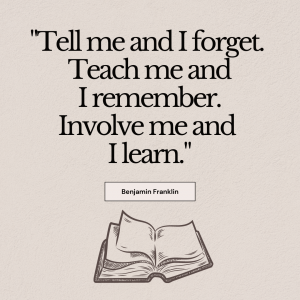
WHAT IS PEER TEACHING?
What do we mean by peer teaching exactly? It is the process of youth learning together and from each other through engaging, hands-on activities. In 4-H, we have the wonderful ability to utilize teens as volunteers and positive role models for our younger youth in our positive youth development programs. Empowering our teens as teachers for our younger members allows life skills to develop among our youth being instructed and also the instructors. The teen instructors are teaching specific topics to their peers at the same time they are strengthening their own leadership, communication, and social skills.
WHAT ARE THE BENEFITS OF PEER TEACHING?
As stated previously, one of the greatest outcomes is that the teacher and the student both gain knowledge and skills. It creates a mutually beneficial environment in which all youth can achieve personal growth and development if implemented and managed correctly. In addition, there are many other benefits of peer teaching such as:
- Peers being taught may form a quicker and better connection with teens due to communication, technology and other trends.
- An increase in peer confidence as they may feel more comfortable in asking questions, discussing topics with others closer to their age.
- Greater creativity as teens may have more innovative or modern ideas to bring to the activities.
- An increase in volunteers as teens have the ability to recruit more teens easier than typical adult volunteers.
- An increase in retention of youth as peers stay in the program and become the next generation of teen volunteers/teachers.
WHAT DOES PEER TEACHING LOOK LIKE IN 4-H?
Below are just a few programs for teens to practice the method of peer teaching in their 4-H county:
- New Members – When new youth join 4-H, it can be overwhelming at times to learn some of the 4-H activities, customs, and such. This would be a great opportunity for
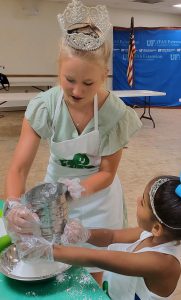 peer teaching. Have teens assigned to new members that join in order to teach them the 4-H pledge, motto, club expectations, member names, etc. This creates a greater sense of belonging and fosters a supportive environment within the club for new members to engage more quickly and successfully.
peer teaching. Have teens assigned to new members that join in order to teach them the 4-H pledge, motto, club expectations, member names, etc. This creates a greater sense of belonging and fosters a supportive environment within the club for new members to engage more quickly and successfully.
- Cloverbud Club Meetings – Utilizing your teen members in club meetings involving Cloverbuds (members ages 5-7) is a great way to incorporate peer teaching in your 4-H program. Younger members thrive off of creativity and enthusiasm which teens often portray easily. Teens can funnel this energy into teaching lessons to Cloverbuds that are engaging and interactive in a simplistic way.
- Summer Day Camps – 4-H programs often times need additional volunteers during the summer to assist with the volume of programming and youth participants. Therefore, summer is a great time to recruit teens to become peer teachers. Having teens as peer teachers helps with supervision and instruction while at the same time, allows them to stay involved in 4-H, continue to apply their life skills learned, and help the program teach life skills to other youth in the community.
TIPS TO GET PEER TEACHING STARTED IN YOUR 4-H COUNTY
What does it take to get peer teaching started in your 4-H county? Time and patience to start with. Teaching with teens is an ongoing task and will take a little effort on your part. Below are a few tips to get you started on having teens peer teach in your county:
- Identify programming that would benefit by peer teaching.
- Recruit quality teen teachers.
- Train and support teens as peer teachers.
- Assign teens appropriate roles in the peer teacher process.
- Model appropriate teaching methods in 4-H programs.
- Shadow teens in the role as peer teachers to provide support and guidance.
- Evaluate, provide feedback, and continue professional development for continued success.
Remember, peer teaching is a great way to utilize teen members in your 4-H programs. Younger youth need as many positive role models as possible in their lives. By having teen teachers take the lead in instruction in your 4-H programs, you are fostering an environment of learning, inclusivity, empowerment, and leadership.
To learn more about 4-H opportunities where teens can take the lead as teachers for their peers, please contact your local UF IFAS County Extension Office, or visit http://florida4h.org.
ADDITIONAL SOURCES:
Burse, G., Crocker, E. T., Jordan, J., McKinney, M., & Murphy, L. (2021). Teens as Teachers 4-H Project: Curriculum and Resources. UF/IFAS Extension, University of Florida. Retrieved May 1, 2023, from https://edis.ifas.ufl.edu/publication/4H432
Eckhoff, A., & Swistock, B. (2011). Staffing with Teenagers and Teens as Cross-Age Teachers. Rutgers Cooperative Extension.
by Marcus Boston Jr. | Apr 26, 2023
Youth shows and fairs provide a valuable opportunity for young people to develop a wide range of life skills. From responsibility and communication to planning and organization, these events offer a unique learning experience that can help young people build important skills for success in all areas of life.
Can a youth’s participation in County fairs and Shows help to develop them into responsible adult? The answer is yes! The Florida 4-H Program seeks to be inclusive to all youth by using a variety of vehicles to teach youth life skills in traditional and non-traditional settings. A recent article in The Journal of Extension by Oregon State professionals found that “having fun” “spending time with friends” and “teamwork” were the highest-rated motivators for youth that participated in fairs.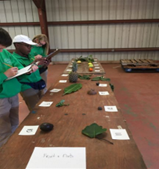
The study also revealed that participation in fairs through 4-H had a significant positive effect on participants’ levels of caring, contribution, and character. These characteristics are also part of the Essential Elements of 4-H that youth experience by being in an active 4-H program throughout the year. Those elements are Belonging, Independence, Generosity, and Mastery.
One of the most important skills that youth learn through participation in youth shows and fairs is responsibility. Whether they are caring for animals, plants, or other projects, youth must take on the responsibility of ensuring that their projects are healthy, well-cared for, and ready to be presented to judges and visitors.
 Communication is another key skill that youth develop through participation in youth shows and fairs. Through active participation youth learn the ability to articulate complex ideas, listen actively, and respond thoughtfully to questions and feedback.
Communication is another key skill that youth develop through participation in youth shows and fairs. Through active participation youth learn the ability to articulate complex ideas, listen actively, and respond thoughtfully to questions and feedback.
In addition to these skills, youth shows, and fairs also emphasize important values such as sportsmanship and fair play. Participants are encouraged to respect their competitors, accept both victories and defeats graciously, and uphold the highest standards of ethical behavior. This helps young people develop important social skills, including the ability to work collaboratively with others and build positive relationships.
Finally, participation in youth shows and fairs can help young people develop resilience and perseverance in the face of challenges and setbacks. These events can be competitive and stressful, but they also offer opportunities for young people to learn from failures, bounce back from disappointments, and remain motivated to achieve their goals.
A few of the Florida 4-H Shows and Fairs are as follows:
-
- State 4-H Dairy Show Okeechobee March
- 4-H Chick Chain Show Chipley April
- Area North Horse Show Green Cove Springs May
- North Florida Fair Tallahassee November
*For additional opportunities to participate in 4-H Shows and fairs please contact your local 4-H office.
In conclusion, participation in youth shows and fairs can offer a unique and valuable learning experience for young people. By developing important skills such as responsibility, communication, planning, and organization, as well as important values such as sportsmanship and fair play, youth can build the foundation for success in all areas of life.
References:
More information on this study can be obtained by visiting the Journal of Extension at www.joe.org and viewing volume 45, number 6.(Arnold, Meinhold, Skubinna, and Asthton)
by Heather Kent | Apr 20, 2023
One of the tenants of the 4-H program is the opportunity for youth to showcase what they have learned. Sometimes this occurs during the county fair or a contest. But youth also have the opportunity to showcase their knowledge and skills during county and district events. This competitive opportunity is the culminating experience of a 4-H project. County and District events are typically held in the spring and qualify for state demonstrations, illustrated talks, public speaking, and share the fun (talent) acts. While participation is optional, this program was designed to give youth a safe space to practice life and leadership skills and receive recognition for all their hard work during the 4-H year. Together, this helps build youths’ self-confidence and poise. If you are new to 4-H, or not familiar with county and district events, this article will provide an overview, as well as some resources to help prepare!
What are County/District Events?
County and District events are an opportunity for youth to showcase what they have learned about their project and practice communication skills. Of all the life skills we teach in 4-H, communication is probably one of the top skills that can benefit youth regardless of what career path they choose. During this event, youth have the opportunity to showcase their skills and knowledge through a variety of contests which include: prepared public speaking, demonstrations (show and tell presentations), illustrated talks (speeches with visual aids), graphic design, photography, and talent show.
What Skills Do Youth Learn Through This Program?
County and District events are an opportunity for youth to learn how to communicate with others. It also helps them work towards a standard. Judges provide positive feedback about their presentation and suggestions for improvement. This helps youth build poise and confidence when speaking in front of groups. Youth who receive a red or blue quality ribbon at County Events have the opportunity to proceed to District events and compete with youth from surrounding counties. Agents and volunteers can work with the youth between competitions to polish their presentations, but the overall topic/theme should remain the same. Senior youth (ages 14-18) who receive a red or blue quality ribbon at District events can proceed to the state competition which takes place during 4-H University.
Why Should My Child Get Involved?
County and District 4-H Events provide a safe space for youth to learn and provide a positive competition experience. While not everyone gets a trophy, youth compete against themselves- that means they are judged against a standard and earn a ribbon based on the standard score. They also receive constructive feedback on how to improve.
What Resources Are Available to Help My Club/Child?
Most county extension programs offer a workshop to help youth prepare their presentations. You can find more information in our 4-H Events and Activities Handbook. We also have previous blog posts with links to the criteria, judging sheets, and training videos. If you are interested in more opportunities like this for your child, OR if you are willing to serve as a judge for competitive events, contact your local UF/IFAS Extension Office.
by Marcus Boston Jr. | Apr 13, 2023
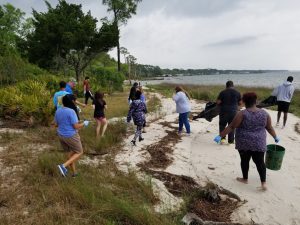 Life skills for youth are defined as a set of abilities and competencies that enable young people to successfully navigate their daily lives and achieve their goals. These skills are essential for personal and professional development and help “prepare youth to be responsible citizens and productive members of the workforce.” Florida 4-H provides many opportunities for young people to obtain life skills through project work, community and afterschool clubs, workshops, and leadership programs.
Life skills for youth are defined as a set of abilities and competencies that enable young people to successfully navigate their daily lives and achieve their goals. These skills are essential for personal and professional development and help “prepare youth to be responsible citizens and productive members of the workforce.” Florida 4-H provides many opportunities for young people to obtain life skills through project work, community and afterschool clubs, workshops, and leadership programs.
As a state-wide organization, Florida 4-H prioritizes the development of communication, higher-order thinking, and appreciation of differences. These three life skills are infused throughout our educational activities and programs because they are essential workforce skills. Below are a few examples of local programs that focus on helping youth develop life skills:
- Communication: 4-H provides opportunities for youth to develop their communication skills through the Florida 4-H Public Speaking Contest, demonstrations, and presentations at County/District and 4-H University. These activities help youth learn how to articulate their ideas clearly and confidently.
- Higher Order Thinking: this includes both decision-making and problem-solving.
- Decision-Making: 4-H offers various programs, such as judging contests at fairs, 4-H event planning committees (district/state council), and club activities that help youth develop their decision-making skills. These activities help youth learn how to make informed decisions and evaluate the outcomes of their choices.
- Problem-Solving: 4-H offers various programs, such as STEM projects and engineering challenges, that help youth develop problem-solving skills. These activities encourage youth to think creatively and find innovative solutions to complex problems.
- Appreciation of Differences– 4-H helps youth learn how to respect and communicate with people who might be different from themselves. Many of our programs offer opportunities for youth to meet new people and explore different cultures. We also help youth learn how to address conflict in a positive way through civil discourse. Older youth can participate in exchange programs with 4-Hers from other states and countries (4-H is in all 50 states and 32 other countries!).
- Teamwork: Through 4-H club projects, counselor training, and community service activities, youth learn how to work collaboratively with others towards a common goal, which helps them develop important teamwork skills.
- Responsibility: 4-H club projects and community service activities encourage youth to take responsibility for their actions and to learn the importance of following through on commitments.
- Leadership Development: 4-H offers various programs, such as officer training, public speaking, county/district councils, and community service projects, that help youth develop their leadership skills.
- Self-Confidence: 4-H programs provide a safe and supportive environment where youth can build their self-confidence through public speaking, leadership roles, and community service activities.
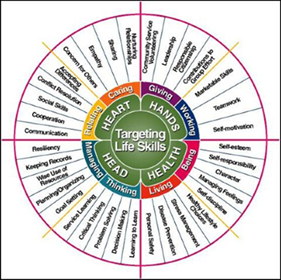
- Service Learning: Through 4-H club work, obtaining a Florida 4-H Community Pride Grant, and active membership on county/district councils, youth members take part in projects and experiences that help them how to become active participants in the communities and apply their experiences to real-life situations.
These are not the only life skills youth in Florida can learn and practice through 4-H- but they are part of almost every program we offer. These are examples of the priority life skills that Florida 4-H promotes among youth, with a focus on cognitive development, interpersonal skills, leadership, civic engagement, and practical skills. Florida 4-H aims to provide a comprehensive youth development program that equips young people with the skills they need to succeed in their personal lives, careers, and communities. Active involvement in 4-H will help members to connect life skills obtained through their 4-H involvement to real-life experiences. For more information on these youth leadership opportunities please contact your local 4-H office.
If you would like to help Florida 4-H teach life skills, or get your child involved in our program, reach out to your local UF/IFAS County Extension Office. There is an office in every county in Florida. Spring is a great time to get involved, because 4-H offers several summer programs for youth to develop life skills!
References:
Marilyn N. Norman and Joy C. Jordan.2018.Targeting Life Skills. EDIS document #4HSFS101.9
Hendricks, P.(1988). Developing Youth Curriculum Using The targeting Life Skills Model
Michigan State Extension. 2016. 4-H Head Life Skill Sheets.(4-H1679)
by Niki Crawson | Apr 6, 2023
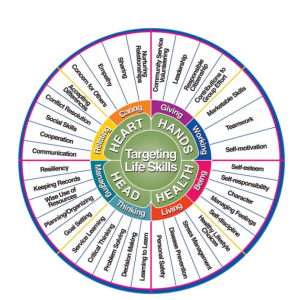
Figure 1. Hendricks, P. (1998) “Developing Youth Curriculum Using the Targeting Life Skills Model”
During the summertime, 4-H typically offers more opportunities for our teen audience since school is not in session as their schedules are more flexible. Because of this, we want to ensure that we are targeting skills that are specific to our teens’ immediate and future wellbeing and success.
In this article, I will discuss why life skills are so important, what 4-H programs already established target, which life skills are most beneficial for our teens and what, when, and how teens can get involved.
WHY DO WE CARE SO MUCH ABOUT LIFE SKILLS?
We know that life skills are abilities learned that help individuals reach their full potential in life. They assist in helping folks successfully handle day-to-day life experiences. We believe they are developed through hands-on learning, activities, and practice.
Life skills are the foundation of 4-H. Utilizing the Targeting Life Skills Wheel (Hendricks, 1998), we connect life skills through 4-H projects, programs, and events to real life experiences based on our Head, Heart, Hands and Health model. By helping youth achieve these life skills, 4-H professionals and volunteers are providing the framework for future academic and employment success, as well as youth thriving and community outreach.
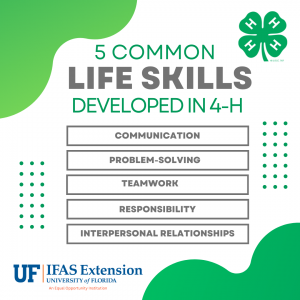
Five essential life skills from the Targeting Life Skills Model commonly developed by participating in 4-H are:
- Communication
- Problem-solving
- Teamwork
- Responsibility
- Interpersonal Relationships
PROJECTS & EVENTS RELATED TO LIFE SKILLS FOR TEENS
Below are just a few 4-H projects and events in Florida 4-H for teens to get involved in to develop and strengthen essential life skills:
- 4-H Tailgating Contest – This program teaches healthy living and the science of grilling seafood, pork, poultry and beef safely outdoors. This program teaches decision making, healthy lifestyle choices, and communication life skills, among others.
- Gator Pit – The Gator Pit is a program open to all teens ages 14-18 in Florida. Youth are taught how to develop entrepreneurial skills through mentorship, competition, and networking to the business community.
- 4-H Legislative – Florida 4-H Legislature provides an opportunity for teens ages 14-18 to experience state government procedures and prepare them for potential leadership in the American democratic process. Youth learn, practice, and defend public policy.
- 4-H University – Florida 4-H University is an opportunity for teens to participate in educational workshops lead by UF faculty, explore potential careers, strengthen interpersonal relationships with peers, and develop critical life skills that will help them become leaders and engaged citizens in their communities.
The Florida 4-H Curriculum Clearinghouse is a list of 4-H resources available, including project curriculum, record books, club resources and other educational publications that meet the standards of Florida 4-H. In this site you can view resources for specific projects. To learn more about 4-H opportunities for teens, please contact your local UF IFAS County Extension Office, or visit http://florida4h.org.
ADDITIONAL SOURCES:
Hendricks, P.A. (1998). Developing Youth Curriculum Using the Targeting Life Skills Model: Incorporating Developmentally Appropriate Learning Opportunities to Assess Impact of Life Skill Development. Iowa State Extension Publication. https://extension.purdue.edu/4-H/about/impact-targeting-life-skills.
Irvine, K. (2019). What are Life Skills? https://blogs.ifas.ufl.edu/nassauco/2019/02/04/what-are-life-skills/













